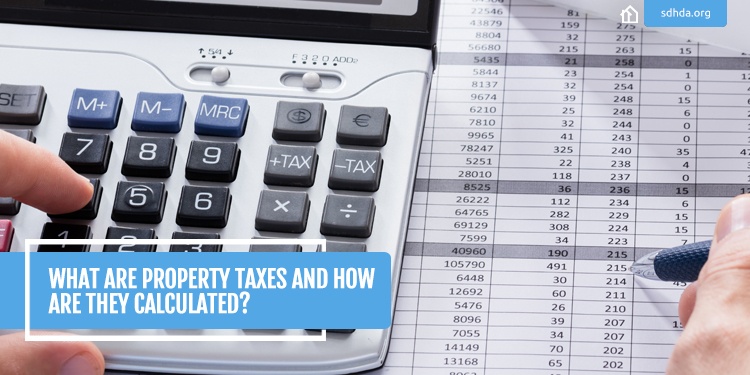
Every homeowner has them—but what do they mean? Property taxes are a part of buying real estate. But how are they calculated? And what are they used for? The way property taxes are assessed varies state to state and county to county, but there are some basic parameters most fit into.
Here is a basic outline of how property taxes generally work for homeowners.
What Are Property Taxes?
First, what is the purpose of property taxes? A lot of that depends on where you live—your state or county may collect property taxes differently than other areas. Typically, though, they're money collected from homeowners or property managers that is used toward upkeep and improvement of public utilities and facilities. These can include schools, municipal government or public utilities, such as gas, electricity and road maintenance.
What Factors into the Amount?
So the amount of property taxes you pay—on what does it depend? There are several factors that go into determining your property tax. The biggest part of it is your perceived home value. A property assessor will visit your home on typically an annual basis to determine how much your property is worth, from the state of the structures on the property, to the features of the outside areas of the property. This value can change year over year if you've made improvements to your home or if your home has fallen into disrepair.
How is it Calculated?
The rate of property tax assessment will vary county to county—the average rate statewide in South Dakota is 1.356 percent of your home's value (according to the local assessor). So, for example, if your assessor valued your property at $125,000, the average South Dakota homeowner would owe about $1,695 in property taxes for the year.
How is it Paid?
Though property taxes can be paid in one lump sum after assessment to your county office, many people opt to pay for their property taxes over time via their mortgage account. The escrow account attached to your mortgage is more than likely set up to account for covering your mortgage insurance (if you're still required to have it), principal loan payment, interest payment and property tax payment. Your escrow account will most likely pay the assessed taxes in their entirety and then require you to simply pay it off on a 12-month schedule versus all at once.
One important thing to remember—if your property value changed, and it will affect your monthly payment via your escrow account, make sure your mortgage provider is aware of the change. Most major providers are able to obtain this information preemptively, but it's always a good idea to double-check that the change was made prior to the "tax due" date listed on your assessment results.


